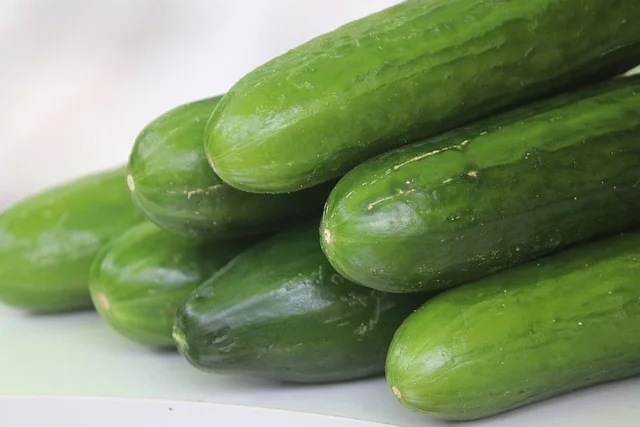Can Chickens Eat Cucumbers?
Cucumbers are a popular, refreshing vegetable often enjoyed by humans during warm weather, but many backyard poultry enthusiasts wonder if this cool treat is safe and beneficial for chickens. Cucumbers, with their high water content and crisp texture, might seem like an ideal treat, but it’s important to understand both the benefits and potential concerns before adding them to your chickens’ diet.

Nutritional Benefits of Cucumbers
Cucumbers are low in calories but high in water, which makes them an excellent hydrating snack. They are composed of about 95% water, which can help keep chickens hydrated, especially during hot weather. Additionally, cucumbers provide a modest amount of vitamins and minerals, including vitamin K, vitamin C, and potassium. Vitamin K supports bone health and blood clotting, while vitamin C helps boost the immune system and potassium aids in maintaining fluid balance and proper nerve function.
Furthermore, cucumbers contain antioxidants like beta-carotene and flavonoids, which can contribute to overall health and may help combat oxidative stress.
Considerations and Potential Risks
While cucumbers can be a healthy treat, there are some considerations and potential risks to be aware of:
- Moderation: Cucumbers should be given in moderation. Although they are low in calories, offering them in large amounts can dilute the nutritional balance of a chicken’s regular feed. Treats, including cucumbers, should constitute no more than 10% of a chicken’s diet.
- High Water Content: Due to their high water content, cucumbers might cause loose stools if fed in excessive amounts. It’s important to introduce cucumbers gradually and monitor your chickens for any digestive changes.
- Pesticides and Chemicals: Store-bought cucumbers can have pesticide residues or other chemicals that might be harmful to chickens. Washing cucumbers thoroughly or opting for organic varieties can help mitigate this risk.
- Choking Hazard: Whole cucumbers, especially if not cut into appropriate sizes, can pose a choking hazard. It’s best to slice cucumbers into small, manageable pieces to prevent any risk of choking and to ensure easy consumption.
- Peels and Seeds: While cucumber peels and seeds are generally safe for chickens, some might find them harder to digest. To avoid any potential issues, you can peel the cucumber or remove the seeds if you observe that they cause digestive discomfort.
How to Safely Feed Cucumbers to Chickens
- Preparation: Wash cucumbers thoroughly to remove any dirt or pesticide residues. Slice cucumbers into small pieces to make them easy for chickens to eat and to prevent choking.
- Offer as a Treat: Serve cucumbers as an occasional treat rather than a regular part of the diet. This approach helps maintain a balanced diet and ensures chickens receive all the essential nutrients from their primary feed.
- Combine with Other Foods: To provide a varied diet, you can mix cucumbers with other fruits and vegetables that are safe for chickens. This variety helps in offering a well-rounded nutritional profile.
- Observe Reactions: When introducing cucumbers, observe your chickens for any signs of digestive upset or other issues. If you notice any adverse reactions, discontinue feeding cucumbers and consult a veterinarian if necessary.
Conclusion
In summary, cucumbers are a safe and hydrating treat for chickens when given in moderation. Their high water content and modest nutritional benefits can make them a refreshing addition to a chicken’s diet. By preparing cucumbers properly, serving them in small amounts, and monitoring your chickens’ reactions, you can safely include this crisp vegetable as a healthy treat. Always prioritize a balanced diet and consult with a veterinarian if you have any concerns about your chickens’ nutrition or health.
